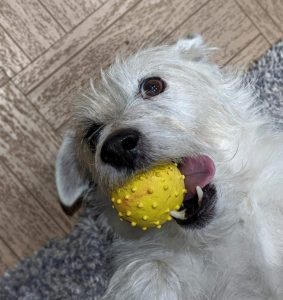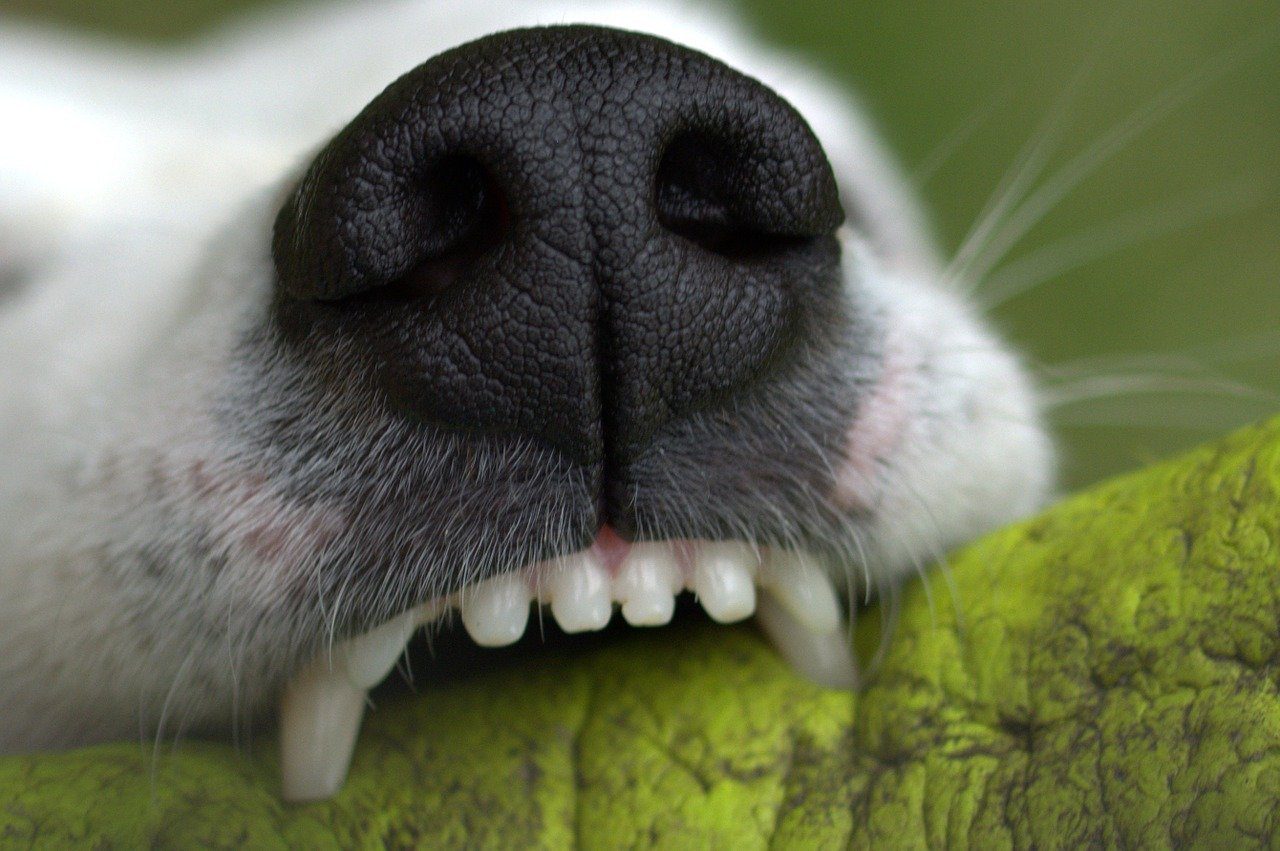How do I stop my Jack Russell biting?
This post may contain affiliate links: Read more here.
Usually a Jack Russell bites because it’s excited. If you are coming into the house, going out on a walk or doing something that excites your JR they can become nippy.
Pull toys or balls are a great way to stop this by removing the possibility to bite. Teach your dog to pick up their toy/lead when they get excited, reminding them if they get close to nipping that the need to “get their toy”.
If you want to learn how to stop a Jack Russell puppy biting read the guide on how to train a Jack Russell puppy.
Jack Russell biting is rarely due to anger, it’s more likely fear or self defence.
We need to learn what triggers the behaviour and avoid it happening again.
If it’s down to being protective of an object or person the best thing to do is remove that thing, or for that person to ignore the dog for a while. This reinforces the dogs confidence to be alone and that it doesn’t need to be protective.
If biting other dogs is a problem consider using a mouth guard until you can improve the behaviour.
Pairs of terriers that are the same sex can often fight, it’s best to separate them when left alone and remove any items that may cause jealousy.
For more on getting a new Jack Russell read this post.
A great investment is to take your dog to training lessons with a professional dog trainer. Find a dog trainer near you on Bark.

Why do Jack Russells growl?
If a Jack Russell is aggressive it can be due to a number of reasons. Like being overly protective or feeling threatened.
Make sure they know their place and remove their ability to be at the same level as humans i.e. on sofas and beds etc. Treat them like a dog (not a human) and respect their space.
If you have an especially grumpy Jack Russell that has changed character, it could be an underlying health problem and worth a trip to the vets.
Some things that we do can actually cause dogs to be aggressive. We need to learn good doggie body language!
Although you should always be higher than a dog (never get below their eye level), you should never lean over them or get too close to their face.
These are very threatening behaviours to a dog.
Signs of aggression to a dog
How your body language might be creating bad behaviour, without even knowing it!
This is a sign of aggressive dominance. Particularly if your dog is already showing submissive behaviour by hanging their head low or rolling on their back. Back off sit down and let them come to you for affection.
If you haven’t noticed dog’s usually approach each other from the back end. Face to face is a much more threatening display especially when combined with baring your teeth – a sign of aggression throughout the animal kingdom.
Dog’s sometimes like to stare into our souls when we’re eating a tasty sandwich but they actually naturally avoid eye contact. Like with many animals it’s rude for a dog to stare straight into another’s eye.
Never shout at a dog for growling, it just reinforces the aggression, it goes without saying to never hit your dog. Don’t pet the dog either as it’s rewarding the behaviour. Just learn to understand what the dog’s saying, adjust your behaviour and send them to their private space if necessary.
How do I stop my Jack Russell jumping up?
Jack Russells are excitable and affectionate dogs but jumping up when you arrive home shouldn’t be tolerated as it won’t just be you they are jumping on.
Problems can arise when there are young children or elderly people at the door.
Be firm and teach them patience, don’t show any affection until you are in the house and settled down otherwise you are inadvertently just rewarding this behaviour.
Make sure they know they aren’t top of the pack by greeting other family members first, this can also help with separation anxiety.
How to calm a Jack Russell Terrier
JR’s are known to be full of energy, that’s what makes them great pets. But they do need a lot of exercise, at least two walks a day, and plenty of playtime.
Otherwise they can be overactive and ‘full of beans’. Get a tug toy or ball on a rope to give your JR a really good work out.
People often ask why does my Jack Russell follow me everywhere? JR’s are curious and get bored just like us!
Another common question is why does my Jack Russell lick me so much? It’s just a habit, plus you probably taste nice and salty or have particularly delicious shower gel or hand cream! Definitely a habit work breaking by distracting them with a chew toy.
How to train a Jack Russell not to bark
This can be one of the hardest habits to break, in many ways a Jack Russells bark is part of his character. Jack Russell Terriers are hunting dogs that were bred to bark when they caught prey to alert the hunter.
They are also highly intelligent and social dogs that can get bored easily if left alone, which can also lead to excessive barking.
They need to be walked at least twice a day, if you don’t have the time find a dog walker near you on Bark.
Like most training, teaching your Jack Russell not to bark takes a calm, consistent approach.
Read the full guide how to stop a Jack Russell Terrier barking.
In short
The most important thing to know how to train a Jack Russell Terrier is to be consistent.
They don’t understand if we tell them one thing is OK one minute and punish them the next.
They are constantly taking cues from you, if you act like bath-time is a chore of course they will hate it!
If you are scared to cut their nails they will fear it.
If you laugh when they chase the cat they will think it’s good behaviour.
It takes no time to create a bad habit but it’s a lot of hard work to change it. Take note of how you are acting around your dog and take the time to learn how to train a Jack Russell Terrier.


Great advice and we have an eight month old Jack and it’s been 17 years since we had a baby at this age. So one forgets the routine since we are also 27 years later too!
Great to hear that it helped!
Why does my jack russel turn on me when I stroke her
Hi Dave,
It could be any number of reasons, it’s hard to tell without getting the dog assessed professionally.
I would recommend a trip to the vets to rule out any pain, then maybe work with a trainer to assess any fear issues or guarding behaviour.
Good luck with her,
I have a 6 months old jack russell, she started growling and snapping at people and other dogs. This started when she was around 4 months. How can I stop her from doing this behaviour.
Hi Sonia,
It’s a great time to work on this as she is still young enough to learn better ways of behaving while out and about.
Is this when you are out on walks and she is on a lead? It’s hard to say exactly what the issue is without meeting her but I would guess that she is defending herself as she feels uncomfortable in those situations – fear is one of the biggest reasons for showing aggression especially in a small puppy.
I would advise teaching her to sit and stay on a lead while other dogs walk past, ask other owners not to let their dogs/children/people approach you and respect her space. Over time she will learn that there’s nothing to be scared of and that you will protect her so she doesn’t have to resort to growling/biting. If you have trouble with keeping her focus on you, practice sit and stay all of the time at home, then out on walks when there are no distractions.
I hope this helps, let me know how you get on.
Jo